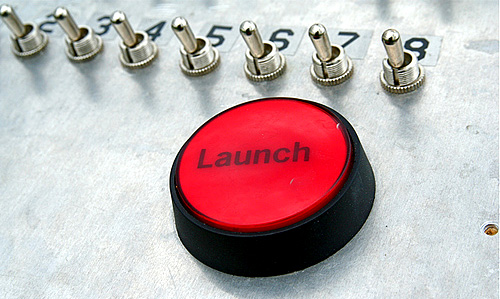
From Nikolas Gvosdev, World Policy Review: Russia’s envoy to NATO, Dmitry Rogozin, has set a timer in motion for resolving the outstanding differences between the North Atlantic alliance and Russia over a proposed ballistic missile defense system in Europe. Since the architecture for this shield is expected to be finalized at the May 2012 NATO summit in Chicago, Rogozin said that time is running out to determine what role, if any, Russia will play in the system. "Our current dialogue on missile defense is very difficult," Rogozin said, "but we must finally either agree or disagree by the end of this year." If not, Rogozin warns that Russia may be forced to develop its own measures, which could raise tensions between Russia and the West and seriously impact the measurable improvement in relations between the U.S. and Russia that has occurred during the first terms of the Obama and Medvedev administrations.
As always, it is the continuing lack of trust between both sides that torpedoes all efforts to find a workable solution. The West wants Russian participation but does not want to give Moscow anything that would amount to veto power over how such a system could be used. This is the basis for NATO’s insistence on two separate missile defense complexes — one run by NATO, one run by Russia — that would coordinate their activities but remain under separate management. By contrast, Russia favors a single, unified approach. . . .
In fairness, costs may also be a factor: Russia is less enthusiastic about having to construct its own system using its own resources, rather than simply contributing technology and expertise to a pan-European network whose costs would largely be shouldered by others.
It remains to be seen if the Russian government as a whole will endorse Rogozin’s timetable, as well as his claim that Moscow would have to respond should NATO decide to move ahead with missile defense without Russian participation. . . .
So what might be the way forward? It is possible that, having alerted Washington and Brussels of the serious nature of its concerns, the Russian government will now draw back from its timetable. After all, in Deauville this past May, Medvedev frankly noted that it could take until 2020 for Russia and the West to reach a definitive agreement on any future missile defense system. If progress cannot be reached by the end of 2011, then perhaps Russian and NATO negotiators should focus on discussing those aspects of a NATO system that could be deployed in the immediate future without raising objections from Moscow, while also giving the Obama team cover so that it cannot be charged with delaying missile defense. In any event, whatever plans are adopted in Chicago next year should be drawn up in such a way that it is possible to bring Russia in down the road, rather than foreclosing on Moscow’s participation once and for all. (photo: Bluewire Media)
Image: bluewire%20media%204%208%2011%20launch-button.jpg
